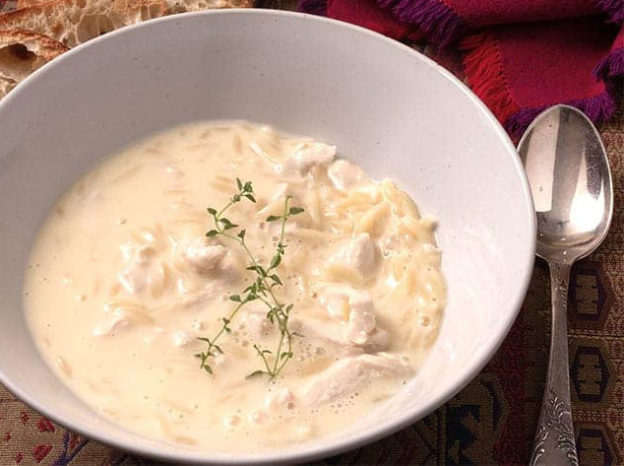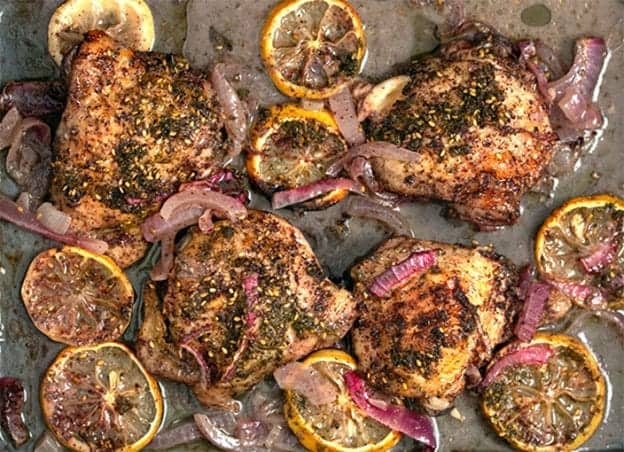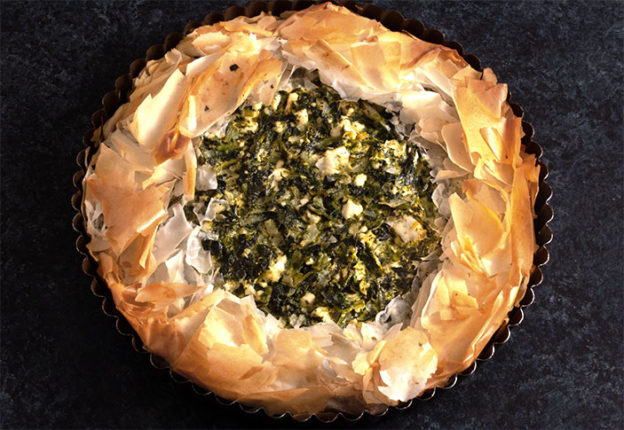Because of my formative years in Egypt, my multicultural background, and my travels, the Mediterranean way of eating has always played an important part in my cooking and is at the core of my website.
Exactly which foods belong to the diet is controversial, partly because there is such variation between different countries surrounding the Mediterranean Sea.
However, the diet is one of the healthiest eating plans recommended by the Dietary Guidelines for Americans to promote health and prevent chronic disease. It is also recognized by the World Health Organization as a healthy and sustainable dietary pattern.
What is the Mediterranean diet?
It is an approach to healthy eating rather than a slimming diet. The amount of calories and carbohydrates you consume is up to you.
The diet’s foundation is vegetables, fruits, herbs, nuts, beans, whole grains and rice. Meals are built around these plant-based foods. Moderate amounts of dairy, poultry and eggs are also central, as is fish and seafood. In contrast, red meat is eaten only occasionally.
Healthy fats
Healthy fats are a mainstay and are preferred to less healthy fats, such as saturated and trans fats, which contribute to heart disease.
Olive oil is the primary source of added fat and provides monounsaturated fat which has been found to lower total cholesterol and low-density lipoprotein (LDL or “bad”) cholesterol levels. Nuts and seeds also contain monounsaturated fat.
Fish are also important, especially fatty fish such as mackerel, herring, sardines, albacore tuna, salmon and lake trout — are rich in omega-3 fatty acids, a type of polyunsaturated fat that may reduce inflammation in the body. Omega-3 fatty acids also help decrease triglycerides, reduce blood clotting, and decrease the risk of stroke and heart failure.
What about wine?
The Mediterranean diet typically allows wine in moderation. Although alcohol has been associated with a reduced risk of heart disease in some studies, it’s by no means risk free.
Cooking for the diet.
Baking, braising, broiling and grilling proteins are preferred to frying and most importantly, cooked in healthy unsaturated fats like extra virgin olive oil rather than the less healthy saturated fats derived from butter.
A word on olive oil.
Extra Virgin Olive Oil has earned its reputation as a healthy, versatile fat. It makes an excellent choice for its antioxidant content, heart-healthy fats, and links to cancer prevention.
Because of these benefits, and its widespread availability, you may find yourself using EVOO for absolutely every type of food prep.
But its low smoke point (the temperature at which it begins to degrade and release damaging free radicals) means it’s not always the best oil to use for cooking — at least not cooking at temperatures above 375ºF (191ºC).
For this reason, EVOO is often recommended for colder dishes like dips, salads, and dressings.
Light olive oil. Extra-virgin may get the most attention in the world of olive oils, but its “light” cousin contains many of the same health-boosting properties.
Light olive oil has a far higher smoke point of about 470ºF (243ºC). Therefore, it’s more ideal for high-temperature cooking, like sautéing, roasting, and grilling.
Light olive oil can also be used in baking, but be aware that its flavor may be overpowering. And don’t be fooled by its name. This olive oil doesn’t contain fewer calories than other varieties. Rather, “light” refers to its more neutral taste.
To summarize, here’s a few key components of Mediterranean recipes
Load up on vegetables and fruits. Vegetables and fruits are nutrient dense, loaded with fiber, great for digestion, and boast a plethora of anti-inflammatory benefits.
Opt for more fish and lighter meat. Fresh fish provides healthy omega-3 fatty acids and a variety of vitamins. And chicken is rich in protein that’s good for bones and heart-health. The key here is to keep a good balance, with the goal of incorporating more seafood into your weekly meals.
Embrace legumes and grains. These plant-based options are full of fiber, protein, and as you might imagine, they’re quite filling. Plus, there’s so many creative ways to cook and eat them.
Savor every minute of it. Like life along the Mediterranean, this diet also calls for slowing things down and enjoying time with friends and family at the dinner table. It encourages you to eat at a slower pace and appreciate each bite.
If you want to explore more about the diet, you might find these resources helpful.
Nutrition Disclaimer
This is written for informational purposes only. The reader assumes full responsibility for consulting a qualified health professional regarding health conditions or concerns relating to this diet. The writer(s) and publisher(s) of this site are not responsible for adverse reactions, effects, or consequences resulting from the use of any recipes or suggestions herein or procedures undertaken hereafter.






GET INSPIRED. SUBSCRIBE NOW.